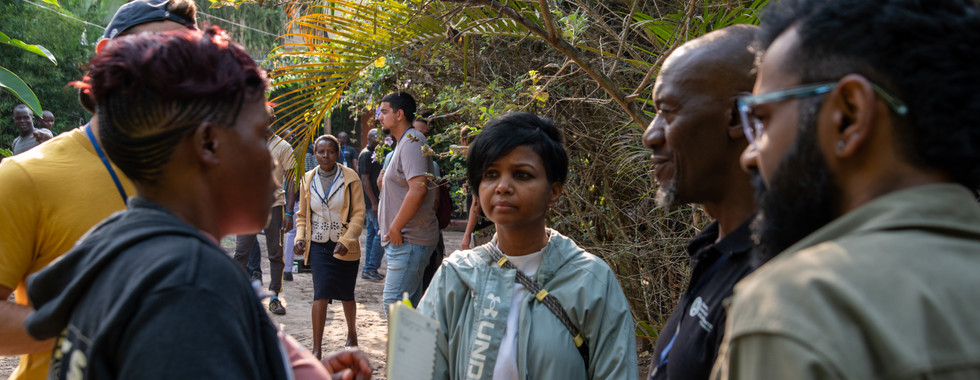The missiological model of Global Outreach Developments has always been characterized by Education, empowerment, and advocacy. Starting on the 27th of July, Gregg Garner together with other leaders from U.S facilitated a 3 day SLAM leadership Conference in which SLAM leaders from both Uganda and Kenya acquired training for how they can in the future host Service camps for student leaders who participate in SLAM. Over 20 American summer interns who are also students at the institute for G.O.D worked in tandem with the senior leaders to help the East African SLAM leaders understand the various aspects of SLAM. This was so that they’d become better equipped to run camps on their own in the near future.
—”You know that empowerment is complete when the person who’s been taught can now do for themselves what they previously needed help doing.”— GREGG GARNER
Students Actively Serving To Educate & Equip Leaders
In all the key bible study sessions, the process of preparation was emphasized as Key to doing service for the LORD. Since Institute students had been previously trained to run SLAM camps and implement each aspect with biblical backing, they were a vital tool in teaching leaders. Leaders then had to sit through multiple presentations facilitated by immersion and summer intern students where they were given more details about the 9 major components of SLAM camps. From Networking, Hospitality, Service Week Coordination, Service Project Coordination, Keynote Speaking, Focus Groups, Meals, and Late Nights, leaders had an opportunity to dive into the gist and main idea about service camps. This was broken down for them with visuals and well illustrated diagrams to aid in their understanding of how each individual aspect is planned out and implemented.
Cultural Axioms Need Examined
Developing the ability to do something takes time. The East African SLAM leaders had to recognize that for them to reach a point where they could independently host service camps without external help is going to require a lot of patience on their part and willingness to learn despite setbacks and the differing contexts. Additionally, with biblical backing from Mark 10:41, leaders were encouraged to be keen as they serve because it's easy to be diverted and pay attention to the wrong voices. They were further taught that developing their team dynamic and being aware of who plays what role comes as a result of first listening to God’s voice and developing self awareness in the long run. However, the voices of culture, religion, and other things can get in the way of what development could happen in each individual so that the team could thrive as a whole. This makes it even more important for the team to have its vision inspired and aligned with God’s vision for what he really wants to do.
Mark 10:45, “For even the Son of Man did not come to be served, but to serve, and to give his life as a ransom for many.”
Introducing A Fluid Model & Framework
Leaders were challenged to consider that not all models are truthful. While it's not easy to choose to be part of something new, over the course of the 3 day conference, leaders testified to having been both enlightened in the word and readied to Implement the organizational model for running service camps. They came into the realization that the framework for holding such events was indeed built on a biblical foundation and is fluid enough to be appropriated to their own contexts regardless of whatever resources they may have or need to generate. Professor Gregg Garner, founder of SLAM stressed that deciding to work without a model culminates in resorting back to unexamined cultural axioms. So, while it's important to have active and not passive involvement in service, the word of God should be the source and example for what model is being implemented. An unexamined framework that’s passed off as legitimate and enforceable will always be devoid of growth and life. In Luke 5:33, Jesus gives an example that verifies that old frameworks lack dynamism. They are rigid and unchanging and this further calls for embracing the new model where there’s continual teaching and learning until maturity for the whole team is attained.
—“The process of preparation is most times undesirable and uncomfortable. It inevitably requires that you die to personal vendetta and understand that there’s a certain responsibility, focus, and discipline attached to it that you need to make part of your life as a servant”.—

































Comments